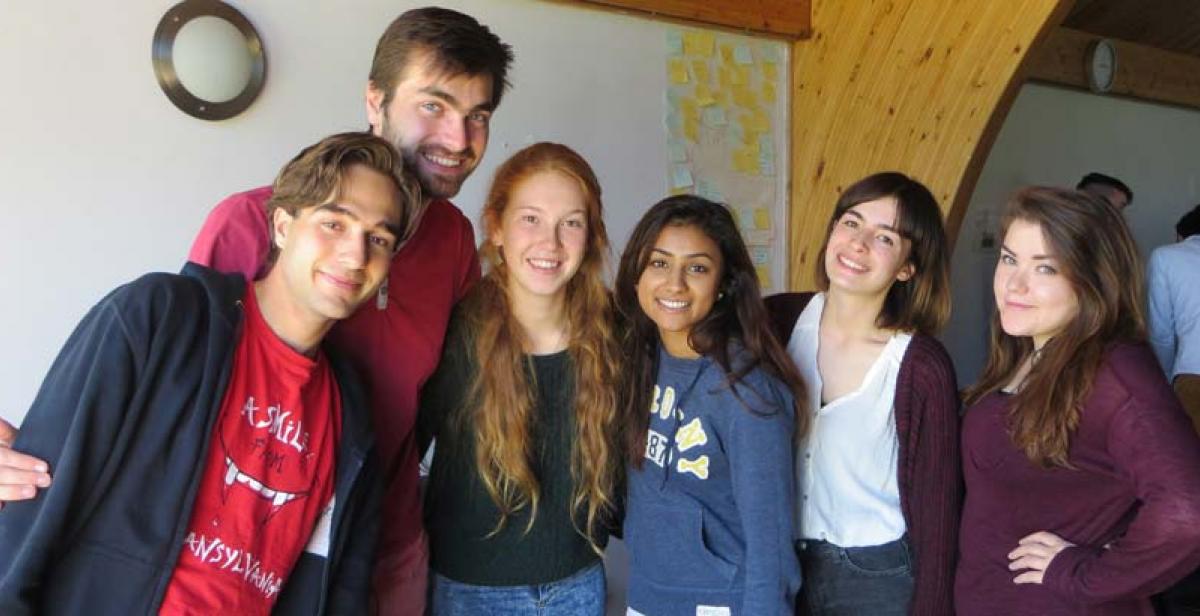For International Volunteer Day, on 5 December, our ICS volunteers in Honduras wrote a series of blogs reflecting on their experience and the importance of volunteering.
The concept of volunteering has been around for years on both a national and international scale. It is a practical and powerful way of confronting social and economic problems, which is why you will often see volunteers in developing countries tackling issues such as poverty and inequality. But why are volunteers important in Honduras?
Honduras has some of the highest poverty rates in Central America, as well as being home to some of the most violent cities in the world. In addition, Honduras seems to suffer from government corruption. It seems that the institutions that are meant to protect and serve the people, often abandon their responsibilities to benefit themselves and thereby fail its citizens. In effect, this leads people to become disillusioned. I have noticed it myself that people in Honduras have little trust in their government. As a result of this scepticism many people become apathetic, in that they see little sense in trying to tackle problems such as poverty, inequality and lack of education.
For this reason, I believe volunteers are important in Honduras. I think volunteering is an effective way of overcoming these apathetic attitudes. Both international and national volunteers demonstrate that it is in fact possible to achieve improvements within the country. Volunteers set an example to the communities that they work in and encourage them to get involved in tackling problems in their community. In this way, volunteers can act as motivational forces restoring willingness and enthusiasm.
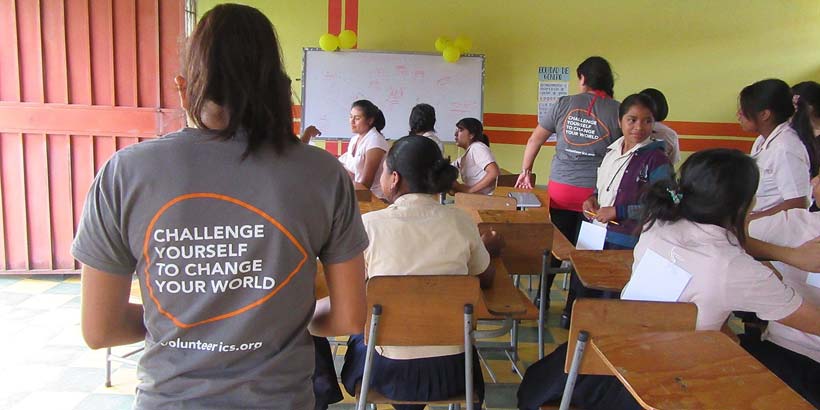
Another reason why volunteers are important in Honduras is because within a country that has high crimes rates and low levels of employment, it gives people something productive to do. The lack of education and employment opportunities in Honduras mean that many people, in particular the youth, are left with very few prospects. In effect, many youths turn to crime. Volunteering programmes provide them with the opportunity to do something meaningful, whilst offering them a valuable experience and a sense of purpose.
Similarly, volunteering schemes allow volunteers to learn from each other and develop valuable skills such as team work, organisation and problem solving. ICS consists of a mix of national and international volunteers. I can see how both are benefiting from this experience. We are able to share our skills, language and culture. Working within a group of different backgrounds and cultures has also made us much more adaptable, flexible and confident, which are very important qualities to have.
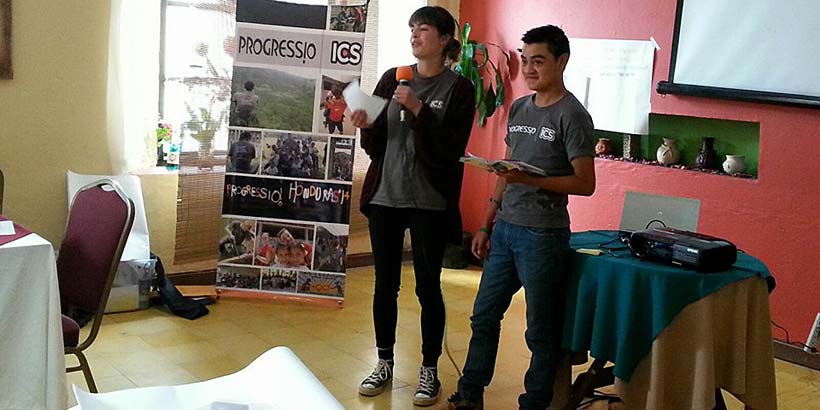
In addition to profiting the volunteers, it is can also be beneficial to the country. Volunteers are an influential and sustainable way of helping the development of a country. It is clear that Honduras is suffering from numerous social, political and economic problems, yet the government does little to confront them. In this case, volunteers are able to tackle these issues on a smaller scale by helping to eliminate or reduce these problems in a certain area or community.
I am volunteering on ICS with Progressio. Progressio is a people powered charity that works in developing countries around the world, focusing mainly on issues concerning the environment and equality for women. From the beginning, my team and I have had a great relationship with the charity. Progressio is very supportive in terms of the project and ensuring its volunteers are well looked after. Whenever our team has encountered problems, Progressio has been at hand to deal with them in a professional and just manner.
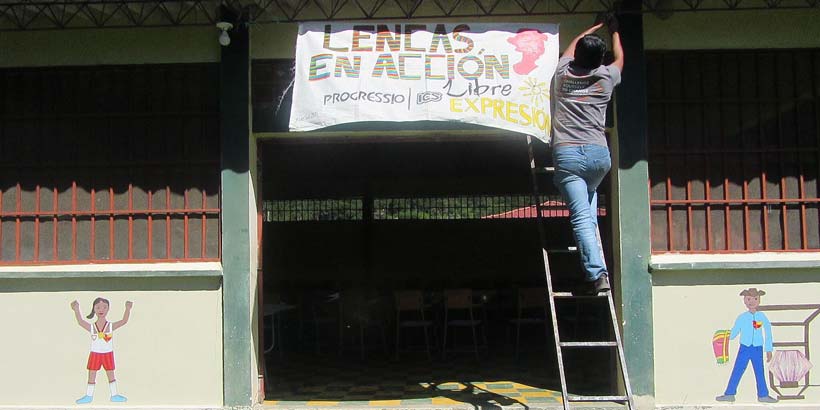
Likewise, I have been working with our partner organisation World Vision. World Vision is an international children’s charity known worldwide. We encountered minor problems with the charity at the beginning of the cycle. However, since getting to know the staff and the project better and overcoming initial cultural and linguistic differences we have built a good rapport with them. Initially, I think our team was quite quick to criticise the charity on not being fully attentive at all times. But as we have come to realise and understand, big charities like World Vision have many projects, work with limited budgets and thus take more time and need to make tactful decisions that may not seem clear at first. I feel that as a team we have shown initiative and have proven ourselves to be dedicated to the project. This unquestioningly has strengthened our relationship with the charity, which is now a partnership build on mutual respect and appreciation.
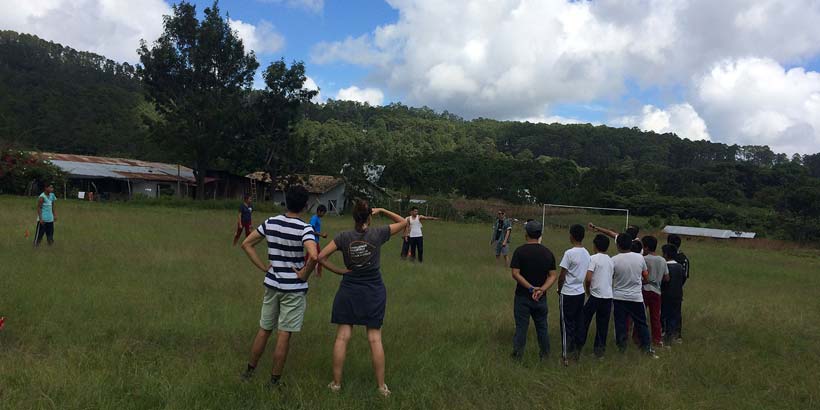
In conclusion, volunteers are important assets to a country like Honduras. They are beneficial to the development of the country as well as the personal development of its national and international volunteers. As I can see from the project that I am working on, volunteers can make a real difference. I am very hopeful that our project will turn out successful and will benefit the community and its volunteers in the short-term, as well as in the long-term.
Written by ICS volunteer Noel Specowius


